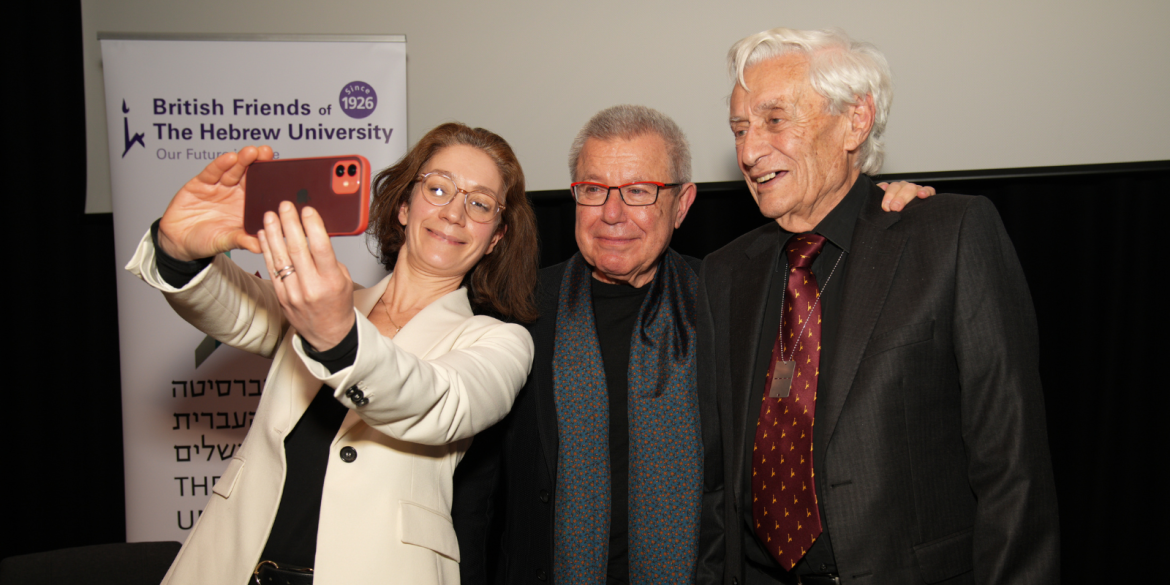
In the week in which Einstein’s 145th birthday was marked, two special guests in London – world-renowned architect Daniel Libeskind, architect of the new Einstein House at the Hebrew University in Jerusalem along with Professor Hanoch Gutfreund, director of the Einstein Archive and former President of the University – teamed up for a spectacular evening at JW3 where they delved into the life of Einstein and shared anecdotes on the planning of the new Einstein House in Jerusalem in a fascinating conversation moderated by Vivienne Stern, UUK Chief Executive and former Director of Universities UK International (UUKi).
Professor Albert Einstein along with other luminaries including Freud, Buber and Weizmann were founders of the Hebrew University of Jerusalem, Israel’s foremost centre of advanced learning and research. Einstein remained a committed supporter; when he died in 1955, he bequeathed his entire collection of 80,000 personal and academic papers to the Hebrew University. The University is the guardian of this treasure which includes among many other unique documents, the original 46 pages of the General Theory of Relativity. The new building, that has received generous support from the philanthropist and art collector Jose Mugrabi, along with funding from the Israeli government, will exhibit examples of Einstein’s legacy, work and research.
On Tuesday evening (12 March 2024), after viewing a short movie about the Einstein House project at the Hebrew University, a full auditorium at JW3 hung on to every word for an hour and a half as Professor Hanoch Gutfreund and architect Daniel Libeskind talked about the project with humour, wit, and in a language that anyone can relate to.
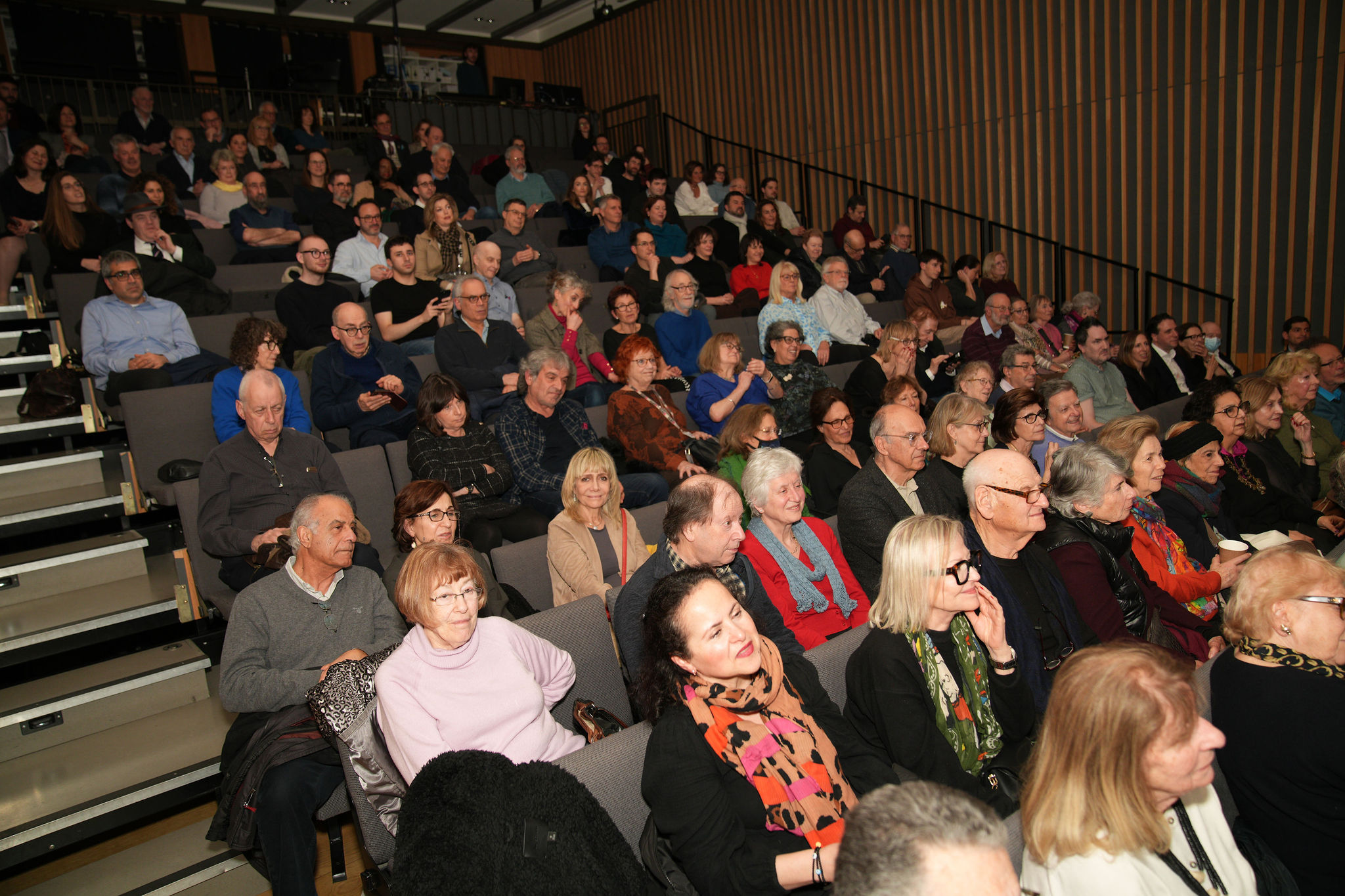
One of the magical moments of the evening was when Professor Gutfreund stood up and demonstrated to the audience how the theory of relativity works and granted the crowd with a mini lecture in physics that he usually performs to his students: “In Einstein’s spirit there’s no force between two bodies. One body curves the space, and the other body moves in curved space. Space is curved. It’s difficult to imagine but I’ll explain something that you can all understand. Imagine there’s a trampoline and on that trampoline, you put a big, massive ball, so there will be a valley. Now roll a small object in that valley and it will fall towards the large object. Now suppose you don’t see a trampoline, what do you see? You see one body attracts another body and you assume there’s an attraction. Newton didn’t see the trampoline. Einstein did”. He said as the enthusiastic crowd applauded.
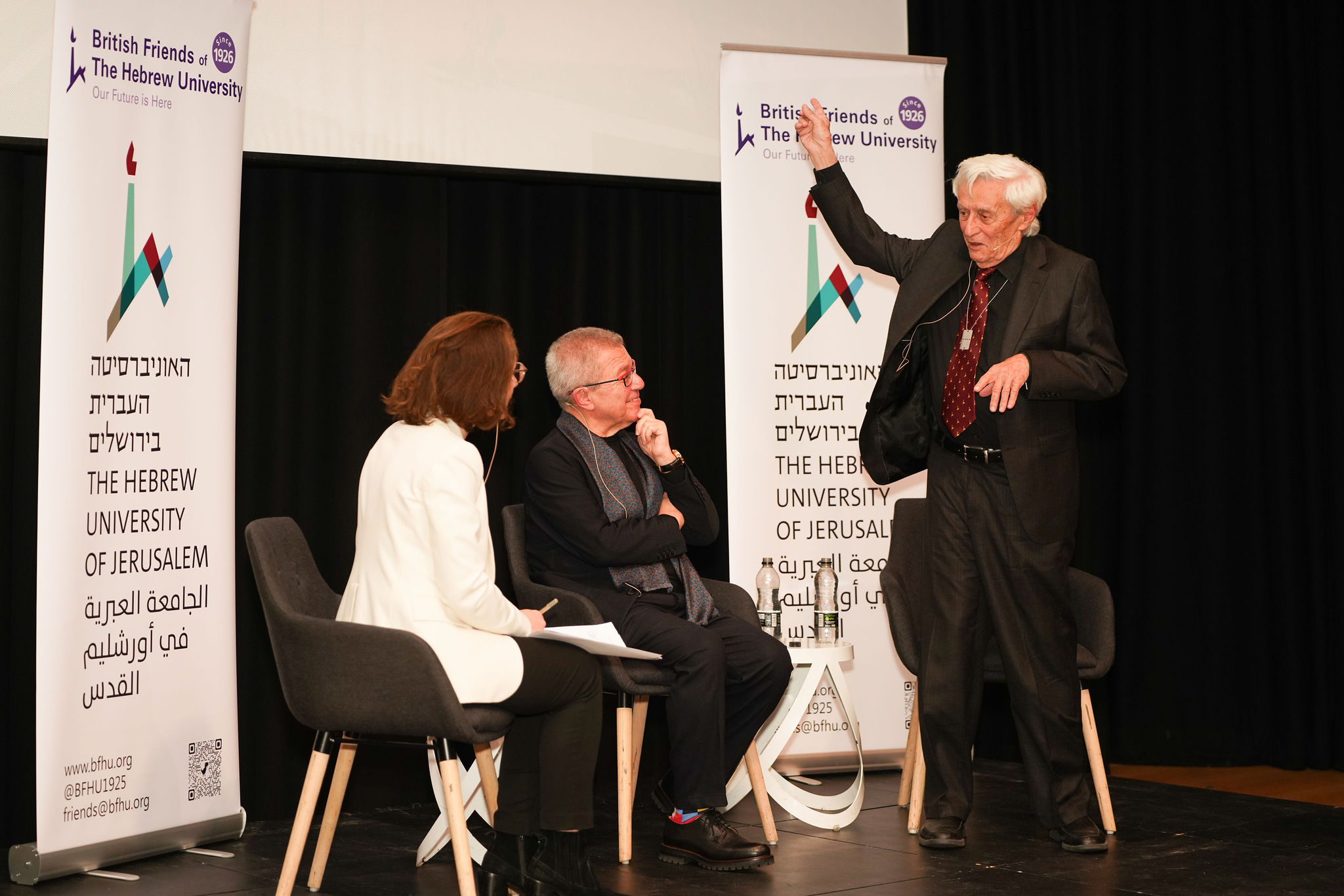
Next day the British Friends of the Hebrew University hosted a lunch at the Tony Page Island Grill restaurant; Prof Gutfreund provided insight into Einstein the humanitarian and scientist while Daniel Libeskind shared his feelings about this project: “It’s been more than a thrill, it’s been really an adventure to be involved with this project which will be a fantastic building designed to welcome people, it will have something for everyone, and it’s meant to be really an icon not just of the campus but of Einstein as a human being, not just a scientist but a great humanitarian and a great person of justice who had progressive ideas, who was always true to himself and to the ethics of what a Jew is. I’m following a great architect; Einstein was the greatest architect of the universe”.
“The close connection between the British Friends and the Hebrew University of Jerusalem spans the entire period of its almost 100 years of existence. Our joint support is particularly welcomed during this challenging period” said Alan Jacobs, British Friends Chair. “We’re thrilled to be able to provide our British friends with access to the University’s fantastic academic scholars and we eagerly anticipate the next upcoming event”.
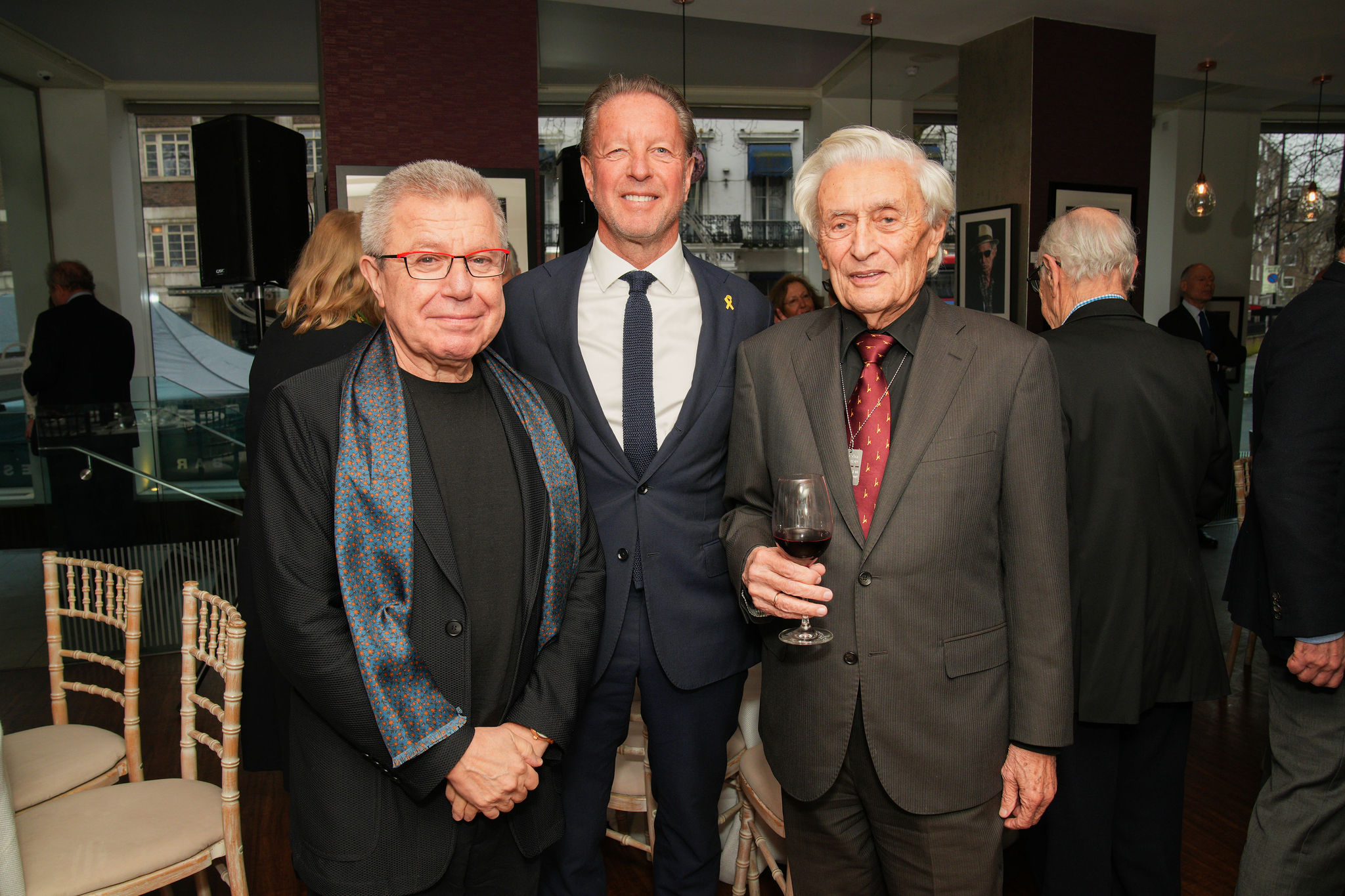
As part of their visit to London, Gutfreund and Libeskind were granted a private tour at the Royal Society, the UK’s National Academy of Sciences, based at 6–9 Carlton House Terrace, a Grade I listed building in central London which was previously used by the Embassy of Germany during WWII. There they explored some of Einstein’s documents kept in the archives, viewed two original portraits of the genius and delved into the history of the place dating back to 1660. They also took a peek at a 400-year-old book in which fellows and foreign members are required to sign when they join the Royal Society. This book is known as the Charter Book, which has been signed continuously since 1663. All British monarchs have signed the book since then, apart from William and Mary, and Queen Anne. Other famous signatures noted were those of Sigmund Freud and Isaac Newton, but one was notably absent and remains a mystery: the signature of Prof Albert Einstein himself.
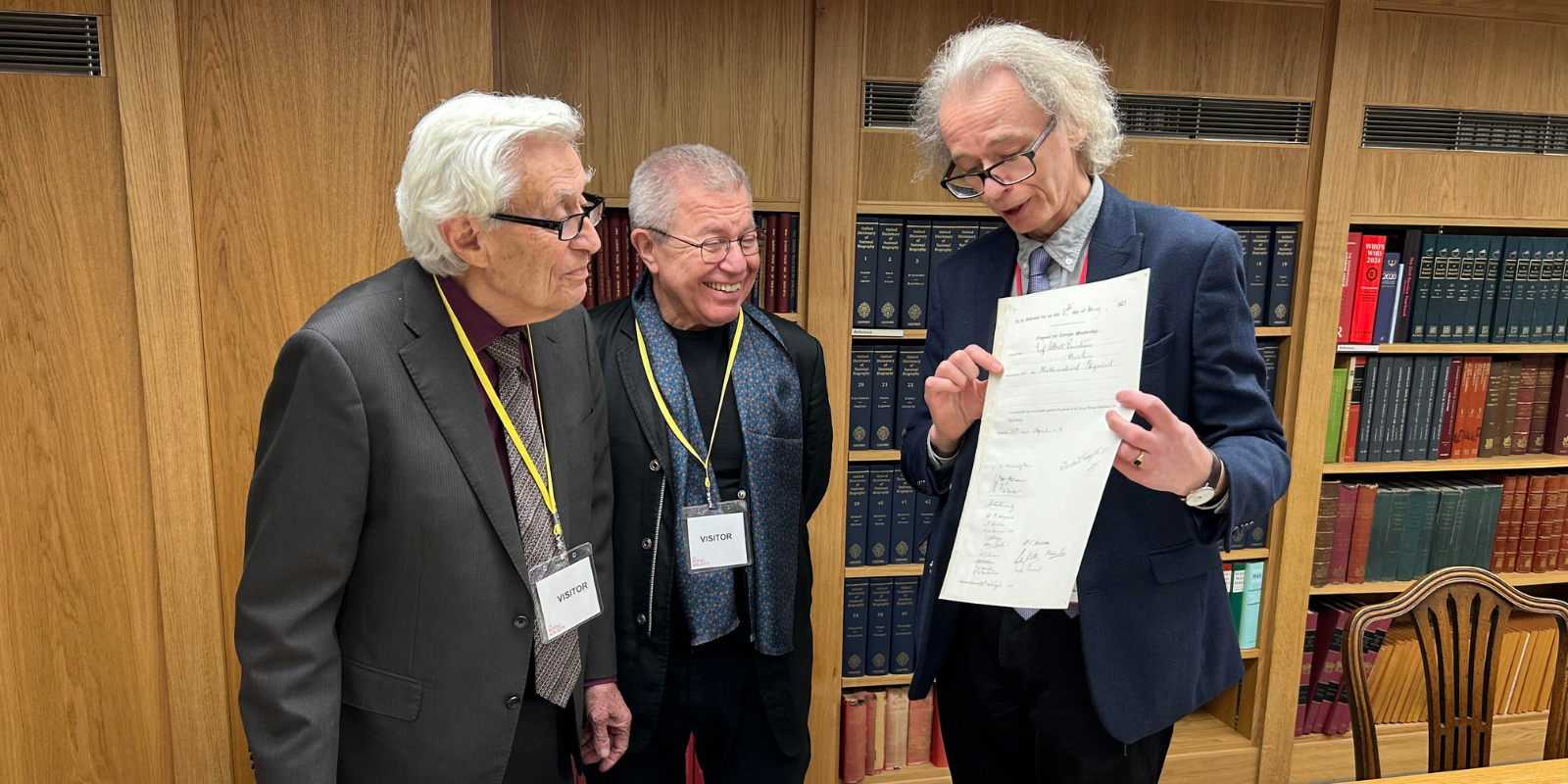
Media coverage:
Jewish News, 20 March 2024, It’s all relative: London plays host to Hebrew University Einstein House project
BBC, Front Row, 18 March, 2024, Architect Daniel Libeskind, composer Karl Jenkins
Photos:
MART Photography – Tammy Shefler
The British Friends of the Hebrew University have been supporting the Hebrew University since its opening in 1925. We also support student and academic collaboration, helping where possible with scholarships and bursaries and more broadly promote the University’s achievements.
Through the philanthropic leadership of the British Friends throughout the UK, the Hebrew University has received immense support in recruiting and retaining outstanding faculty, in new building, in teaching and research facilities and in providing scholarships and fellowships that advance basic and applied research in a vast array of disciplines.
BFHU’s programmes, events and missions to Israel promote greater appreciation of the Hebrew University’s breadth and scope of achievements and the University’s pivotal role in educating leaders for the State of Israel. By nurturing Israel’s greatest natural resource – the intellectual strength of the nation’s people – BFHU helps the Hebrew University to improve human health, lead the way with agricultural innovation, spearhead the latest breakthroughs in brain sciences and illuminate the world through the humanities.
